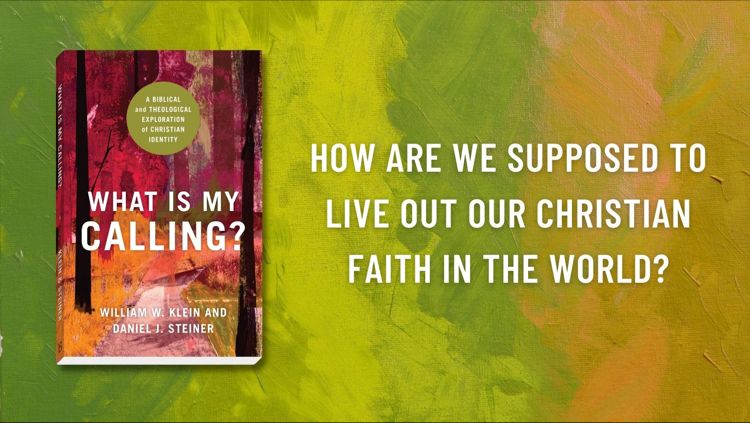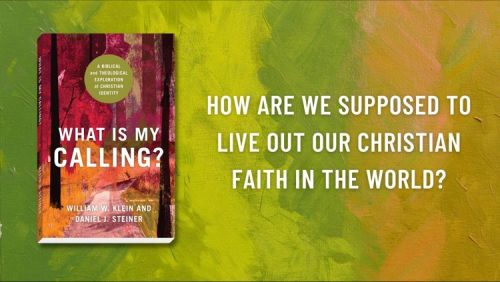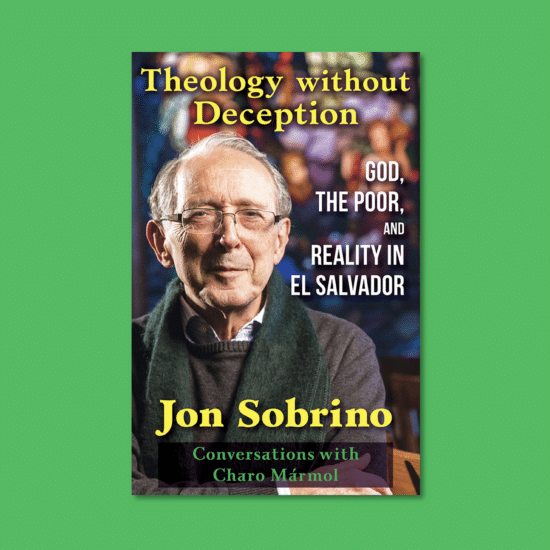

WHAT IS MY CALLING? A Biblical and Theological Exploration of Christian Identity. By William W. Klein and Daniel J. Steiner. Grand Rapids, MI: BakerAcademic, 2022. Xiv + 194 pages.
Who am I? What is my “calling” in life? Is it ministry? Teaching? Writing? How would you answer the question of calling? On what basis do you answer the question? We use the term “calling” in many different contexts. Those of us in “professional” ministry often speak of being called by God to ministry. We might even narrate the moment we felt the call. My denomination has an office of “Search and Call” through which clergy place themselves in a position to be considered by a congregation or other denominational entity so that we who search might receive a call. Then after the pastor and congregation agree to join together, the congregation provides a letter of call, which is essentially our contract. Is that what we mean when we speak of call? A contract? Probably not!

Robert D. Cornwall
When it comes to such language, are we using the term call correctly? Is it little more than a contract and how do we determine with God is in the call? So, is a call something religious in orientation or not? Luther suggested that we all have a calling and we should stay in that calling. He believed that “secular” vocations are as valid and meaningful as “sacred” ones. So, if you are called to be a blacksmith, stay a blacksmith. His view has influenced our view of vocation ever since, such that a call equals a job.
While we use the term in many different ways, is this correct usage? Or, should we define our terms better? This is a question posed by William Klein and Daniel Steiner, professors at Denver Theological Seminary in their book What Is My Calling? They wish to call us back to a more biblical usage so that it speaks more clearly about our identity in Christ and keeps us from falling into problematic uses. The book we have before us emerged from a course team-taught at the seminary for students in their final semester as they pondered their future. With the term calling in regular use, they wanted to help students wrestle with their future employment. Their big concern dealt with what happens when a student believes they have been called by God to vocational ministry and then after graduation, no job shows up. That can be a devastating experience. Did they hear God incorrectly or did they have an imprecise view of call? From their experiences with students, they encountered some who had a clear sense of call, some who didn’t, and some who struggled with what this meant. So, they ask the question: “Should the absence of a conviction of God’s calling disqualify people from pursuing Christian ministries?” (p. 1-2). Their answer, as they lay out their premise in the course of the book, is no. The problem, they believe, lies in an inappropriate use of the term call.
They begin the conversation with a chapter in which they explore the ways contemporary writers and others use terms such as call and vocation, showing the shadow side of the use. They take note of how the term is used in popular conversation. First of all, it is used to refer to jobs, tasks, or roles. Secondly, the term is used in individualized and specific ways, such that it might refer to one’s passions or giftedness. Thus, I might say that I’m called to be a writer based on my passion (and hopefully gifts), but is that a call? Some speak of callings being multiple, such that one might have several callings in life. In this view, we have a primary calling to follow Jesus, while our job is a secondary calling. Fourth, they note that some speak of hidden callings, which we need to discover. This might be understood in terms of our life purpose—which is often connected with a job. When it comes to jobs, they helpfully remind us that many jobs are mundane and difficult, and perhaps demeaning. So, are these callings? Since the above uses are problematic, is there a sense of call that the authors might embrace? There is, it’s our call to Christ, a calling they explore with some depth.
Having laid out the various ways the term is used, you might expect them to jump back to Scripture to discover the appropriate view of calling, but they postpone that move and first take us on a historical journey from the post-biblical world to the present. They invite us to consider how Christians have understood calling/vocation from the second century onward. They show us how the idea of a sacred, usually monastic, vision of vocation emerged, especially after Constantine, such that calling was something reserved for ecclesial jobs. That was more fully developed as the church traversed the Middle Ages. This view held strong until Luther came along and turned things upside down, suggesting that we all have vocations/callings. Some might be called to ministry but one might also be called to being a blacksmith. Both are equivalent, so stay where you are! As they enter the modern world, they bring into the conversation Dietrich Bonhoeffer and Karl Barth who challenge Luther’s view of vocation and take us back to a more biblical view, such that call has to do with one’s participation in Christ. They take note here that while ministry callings have predominated the conversation, this might be a misuse of the term.
Having looked back through time, they take a step further back to the Bible. They make a rather thorough look at the way the term is used and to whom it applies. While there are a few people who appear to be called by God, the term is rarely used individualistically. They make use of two principles of interpretation in this chapter. First, they “believe that the goal of interpretation is to discover the meaning the biblical authors intended at the time of writing.” Secondly, they want to distinguish between descriptive and normative language. Here they are concerned about the use of narrative, such that the description of Paul’s call by Jesus becomes normative. I won’t give a complete analysis here, but their focus is on developing a fairly narrow definition of call so that it can be used appropriately in the present. They want to use the term with greater precision than what we usually use.
Having laid out the current landscape of usage, the historical development of the concept, and the biblical perspectives, they turn to their core purpose, and that is to help us understand what call means and to form our lives accordingly to that definition. Chapter four serves as a review of sorts, helping us bring together what we’ve encountered to that point. Then in chapter five, they invite us to construct a “theological map for calling.” After briefly deconstructing popular usage, they begin to reconstruct a theology of calling focused on being in Christ. They make it clear that in the New Testament, the idea of call is generally understood in a corporate rather than individual way. It is the church as the body of Christ that is called together, and as such called upon to live in a way worthy of that calling. This is, of course, a challenge to our modern individualistic sensibility, but it is the way the term is generally used, and they want us to use it in that way.
If we define calling in terms of being in Christ (not just following the way of Jesus but participating in Christ) and this calling is understood corporately and not individualistically, how might we embrace that calling? One way to do this is to be more precise in our use of the term. In their view, we should use the term as it is understood biblically, and as such understand it in terms of being called to salvation in Christ. In that regard, they write that this means being called to be members of the church, the body of Christ. As such, we discover the nature of our calling in Christ by doing certain tasks that reflect being in Christ. That includes living godly lives reflective of our life in Christ. As for offices, these are functions of the church but not callings. Here they address the question of how one discerns choosing to take up pastoral work if one can’t narrate a divine call. That can be freeing. There is truth in this since I ended up serving as a pastor for almost twenty-five years, even though I believed I was called to an academic career. I saw that as a call to ministry, just not to the pastorate (though I did pursue ordination). So, did I mishear God, or did I use the term inappropriately? I imagine they would say that I used the term inappropriately.
There is much to like about the book, though at points I felt they were being too precise in their attempt to define the term. The warnings are appropriate, but as we’re discovering narrative is an important way of conveying thoughts and beliefs. Nevertheless, their discussion of the shadow side of call language makes sense. So, finding other terms such as gift or passion might be better than using the word call, though it’s difficult to break habits. I should note that at least in my denominational context call is usually understood in terms of a congregational call. Though it’s difficult not to think of call even in this context as having a divine component. The book’s message can be helpful if it helps those who are struggling to make sense of their desire or inner compulsion to pursue vocational ministry. Their point is simple calling does not equal a job. Rather, a call has to do with participating in Christ through the body of Christ. That is what we are being called to. While all that is true, I still like call language when it comes to pastoral ministry. It’s hard to let go of such language! However, we can thank William Klein and Daniel Steiner for writing What Is My Calling? as it can help us better understand our place in the body of Christ.
This review originally appeared on BobCornwall.com.
Robert D. Cornwall is an ordained minister in the Christian Church (Disciples of Christ). Now retired from his ministry at Central Woodward Christian Church (Disciples of Christ) of Troy, Michigan, he serves as Minister-at-Large in Troy. He holds a Ph.D. in Historical Theology from Fuller Theological Seminary and is the author of numerous books including his latest books: Called to Bless: Finding Hope by Reclaiming Our Spiritual Roots (Cascade Books, 2021) and Unfettered Spirit: Spiritual Gifts for the New Great Awakening, 2nd Edition, (Energion Publications, 2021). His blog Ponderings on a Faith Journey can be found at www.bobcornwall.com.






